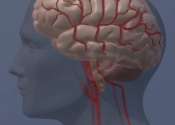Heading—not collisions—cognitively impairs players
Worse cognitive function in soccer players stems mainly from frequent ball heading rather than unintentional head impacts due to collisions, researchers at Albert Einstein College of Medicine have found. The findings suggest ...
Apr 24, 2018
0
17







